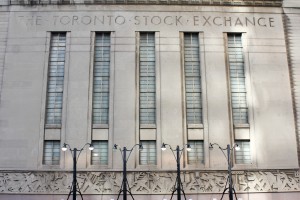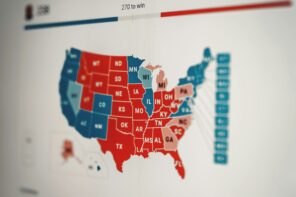We trade one item for another because we believe the item we receive has more value than the item we give up. The value of something is not its price tag. Value is intrinsic, it is a personal opinion of the utility it brings us notwithstanding the amount of money it is worth. Consider this classic example, 1 coffee costs $2 and brings us satisfaction. The 2nd, 3rd and 4th coffee also cost $2 each, but bring us incrementally less satisfaction (who wants to drink 4 coffees in a row?). Theoretically, for trade to take place, the trading partners must intrinsically value the items differently, otherwise neither individual would experience an increase in value from the trade.
Value is essentially the worth or usefulness of something. A market is a place where people meet to exchange on the basis of their beliefs of value. We exchange our money for an iPhone in the market of the Apple store. We exchange our time for money in the labour market (with the notable exclusion of unpaid internships). We exchange our money for food in the market of the grocery store. Importantly, we always tend towards exchanging up in value.
“A sandwich is worth more to me than these 4 dollars. Hey Sandwich Dave (first name Sandwich, last name Dave) lets make a trade: My money for your food.” Both participants of a transaction value the same product differently, which allows the transaction to take place. I need food because I am hungry. Therefore, the food is more valuable to me than $4. For Sandwich Dave, $4 is more valuable to him than the sandwich (presumably because he has many more sandwiches).
The same product, but with different beliefs of value, led to a trade.
The same principal applies for financial markets. As an investor you might think of buying Apple stock. The reason you would buy the stock is that, relative to all other financial products you can buy, AAPL will give you the most value per dollar.
There are two reasons to undergo any barter transaction: reward and risk. Inherently, we are interested in maximizing reward and minimizing risk. Value is the combination of these two concepts. However, individual opinions of the optimal combination that results in maximum value differ. Certain investors value minimizing risk (risk-averse) over all else, others prioritize maximizing reward (risk-neutral). For someone to maximize their value extracted from a transaction, they demand the most reward for the level of risk they are willing to accept.

Risk and reward are not just concepts for financial markets. Even when we eat our food, risk and reward are at play – our personal preferences dictate the combination of risk and reward we are willing to accept. Risk-averse eaters take small bites and check expiry dates to avoid risk of food poisoning and choking. Eaters who value reward highly may eat uncooked fish to experience the taste, without much regard for the risk of a potentially unpleasant evening thereafter.
An investor may buy Apple stock because he thinks that it is undervalued relative to what someone else will pay. This just means that he thinks someone else will want to buy it at a higher price; someone else values it more than he does. Buyers buy because they think they can sell higher. We go through transactions because we think we can gain value from them.
Given the choice to buy AAPL at $450 and then resell for 10 percent more, or buy GOOG at $500 and then resell for 8 percent more, the intelligent investor would go with Apple, Right? Not necessarily. This methodology considers only reward without regard for risk. If AAPL is more risky than GOOG, then the risk needs to be factored into the investment decision. Investors shouldn’t consider expected return in their decisions, they should refer to risk-adjusted expected return.
Financial markets are just like any market where transactions take place. They help people achieve higher value by trading the resources they have available for new resources. So readers, I want you to think about how you value items. The point at which one thing becomes more valuable to you than another is personal and subjective. At what price is money more valuable to you than time? At what point is happiness more valuable than money? And at what price is a sandwich more valuable to you than cash? Super Sandwich is starting to make a lot more sense, isn’t it?
Disclaimer: I have no position in Super Sandwich and no plans to initiate any positions in the next 72 hours other than one in a line.








